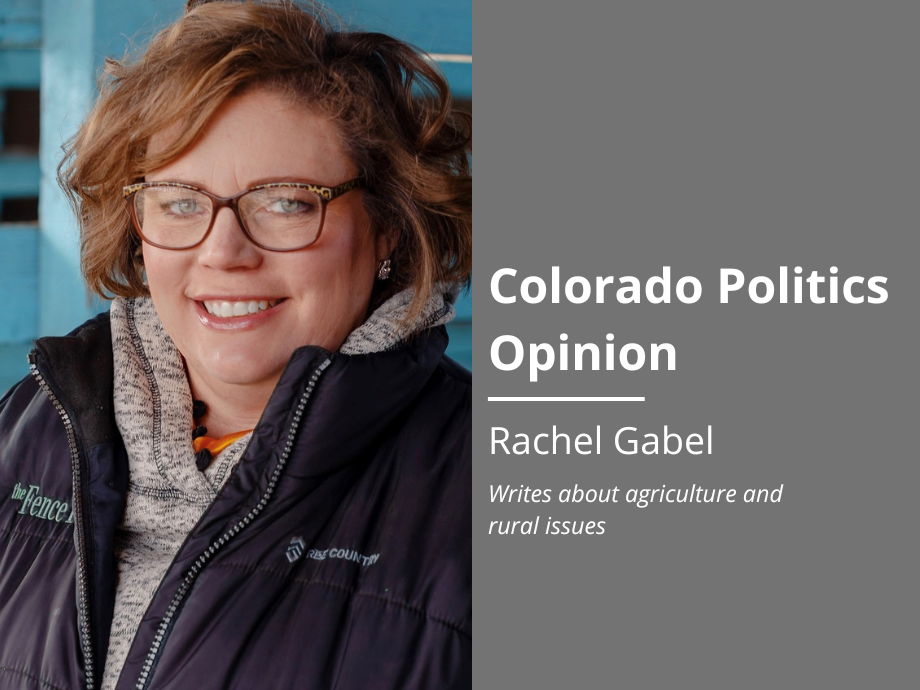A right to repair for Colorado’s agriculture community | GABEL


The bill sponsored by Rep. Brianna Titone (D-Arvada) to provide the right to repair agriculture equipment is headed to Gov. Jared Polis’s desk. It was an interesting bill to witness moving through the process, particularly considering the wide range of opinions within the ag community. There’s no doubt I frequently answer my phone and get an earful from a reader. Oddly enough, they typically agree with what was written and they tend to agree with others who also have a role within the industry.
Of course, those within the vast agriculture industry certainly don’t agree on all issues, but ag right to repair was an issue I didn’t even know we didn’t agree on. The American Farm Bureau Federation signed a memorandum of understanding with John Deere and CNH Industrial, manufacturer of Case IH and New Holland, that the AFBF said respects intellectual property rights. It also recognizes the need to ensure safety controls and emission systems are not altered, but allows access to brand manuals, tools and product guides. In an age of tractors that aren’t like your granddad’s, farmers are able to either work on the equipment or hire an independent repair facility. It’s a non-government solution and I can certainly appreciate that.
Stay up to speed: Sign-up for daily opinion in your inbox Monday-Friday
In Colorado, Titone introduced the ag right to repair bill that mirrored the wheelchair right to repair law she sponsored in 2022. She said after wheelchair users, ag producers seemed to be the group that most needed a right to repair. The national discussion has been robust with the MOU agreements, and she said she repeatedly reads articles about farmers who have to purchase 30- and 40-year-old tractors so they are able to work on them.
Sen. Cleave Simpson, R- Alamosa, who represents thousands of the state’s ag producers, supported Titone’s wheelchair right to repair bill but not the ag bill. He said a quick internet search produces wheelchair repair services available only in Denver and Colorado Springs, leaving much of the state without repair access in their community. He said, however, that is not the case for agriculture equipment dealers and repair facilities which are scattered across the state and accessible to ag producers. That differentiation was an important one to him. He never supported the bill, calling it a problem looking for a solution. In his comments prior to the final House vote, he said only four of his constituents urged him to support the bill.
Conversely, in northeastern Colorado, Sen. Byron Pelton, R- Sterling, said he had a number of constituents who urged him to support the bill. Pelton was a force in passing several of the bill’s 31 amendments. Among them, repealing the law if Congress enacts a federal ag right to repair law, excluding the inner working of high-voltage irrigation equipment, and taking into account MOUs. None of the legislators from the state’s ag-heavy districts supported the legislation.
“As one of the few members of this body that owns agricultural equipment, that should raise a little bit of a flag with folks to say maybe there is something not quite right in the bill,” Simpson said. “I think I can highlight that by saying the introduced bill is not quite four pages long, but today was the introduction of the 31st amendment to the bill.”
The bill is headed to Gov. Polis’s desk and proponents of the bill, including Rocky Mountain Farmers Union, expect it will be signed. Titone said she is hopeful the bill will serve as a model for other states, hopefully without the concessions made. Among those celebrating the win is Montana Farmers Union president Walter Schweitzer who called the legislation a breakthrough.
“This allows farmers and ranchers from anywhere in the United States to go to Colorado and buy the tools to repair their equipment,” Schweitzer said. “What that means is I can order the tools and they can ship them to me. The hardware you need is mostly the cables that will connect you to your equipment, software, access to the diagnostics and repair tools that really allow you to program new parts that you purchase to communicate with the on-board computers. And that’s what we’ve been fighting for and now we can buy it in Colorado.”
Rachel Gabel writes about agriculture and rural issues. She is assistant editor of The Fence Post Magazine, the region’s preeminent agriculture publication. Gabel is a daughter of the state’s oil and gas industry and a member of one of the state’s 12,000 cattle-raising families, and she has authored children’s books used in hundreds of classrooms to teach students about agriculture.













